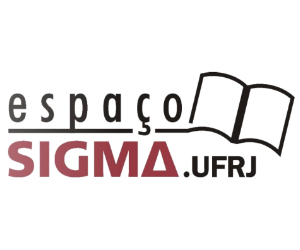Faculty
It encompasses the dynamic forms and the rationalities through which power is historically constituted in the formation of identities, in the institution of hierarchies and in the definition of trajectories of social mobility, across times and spaces.
Tematic clusters
Slavery is a historical phenomenon and a political institution identified with a range of power practices connected to forms of dependency, work and social hierarchies, practiced globally. This thematic cluster studies and advises research that understand slavery as a concept with diverse meanings – a concept that is simultaneously legal, economic, political, religious and intellectual and sociocultural. Its practice is related to broad semantics of the domination of forms of dependency, of compulsory work, coercion, which led to the repositioning of instances of physical and symbolic mobility, by redefining categories and social places in different temporalities and different geographic spaces.
Political economy as an academic discipline had a particular development in the 18th and 19th centuries with French physiocracy and classical English economics (Adam Smith, David Ricardo, among others). However, its antecedents draw from writings by Aristotle and Saint Thomas Aquinas, in which economics was seen as part of philosophy. This thematic cluster seeks to recover this tradition by understanding the intimate intersection of economic history with anthropology, politics, sociology and other segments of the Human Sciences. Its initial assumption is that the economy, particularly the production process, is rooted in historically defined societies, in which it expresses itself as a material basis. Thus, the agents of the social relations of production are also seen as subjects immersed in kinship, political relations, endowed with worldviews, and, finally, with dreams and perspectives. This also implies paying attention to the interactions between the economy and other sectors of society, such as the State. Alongside such theoretical assumptions, our research also focus on the production of methods, techniques and the problematization of primary sources that make their assumptions feasible. Finally, the thematic cluster aims to contribute to the reflection and theorization of economic systems.
The research themes in this thematic cluster emphasize the powers (Church, kingdoms, etc.) and the different agents and groups that make up the analyzed societies. Most researchers focus on the history of the Ibero-American world, which comprises colonial societies and their ethnic and cultural diversity arising from interactions with indigenous and Afro-descendents. The studies concentrates on fields that cross Religious History in multiple dimensions, as they encopass diverse aspects of Social History and Politics of Religion, History of religious practices and beliefs, and the Social History of the Church, and whenever possible in dialogue with other Social Sciences such as Sociology, Political Science and Anthropology. More specifically, the research projects focus on the relationships established between religious institutions and local powers (lay brotherhoods, religious orders and missions, rituals and festivals), by recognizing the discontinuities imposed on the notion of religion in the Modern Period, and the challenges brought by the Protestant and Catholic Reform, not only in the institutional field but also for the experience of religiosities, beliefs and practices.
It brings together researches that are focused on the relationship of history with, on the one hand, nature, understood as the set of objects, elements, and processes that are created or fully controlled by humans, and, on the other hand, with territoriality, understood as the spatialization of human sociability. Our vision is based on a non-dualistic reading of nature and human history, in which we see these realities in their dynamic and inseparable intertwining. These interlacings almost always take place in specific territorial contexts. Thus, we do not see territories as empty spaces, in the model of political maps, but as full and active spaces, that encompass physical and biophysical processes, elements and beings. Human movements are thus intertwined with the movements of nature, whether in their ecological, social, economic, and/or cultural aspects. Drawing from the diverse temporal and spatial scales – from an urban neighborhood to the Nation-State and even the entire planet, and from everyday life to vast geological eras – we study these relationships both through traditional sources and methodologies of historiographic making and through fieldwork and dialogue with other disciplines.








